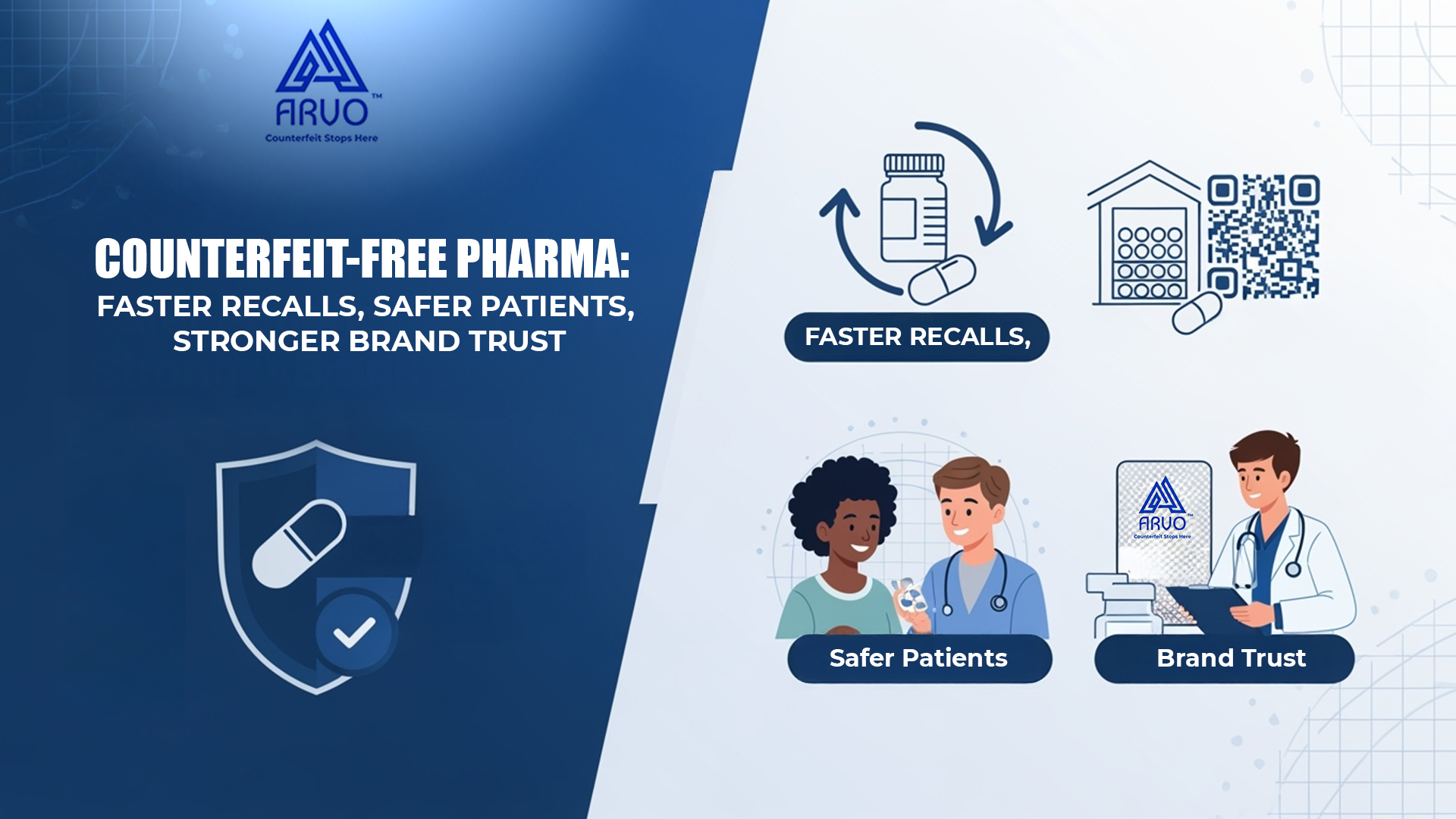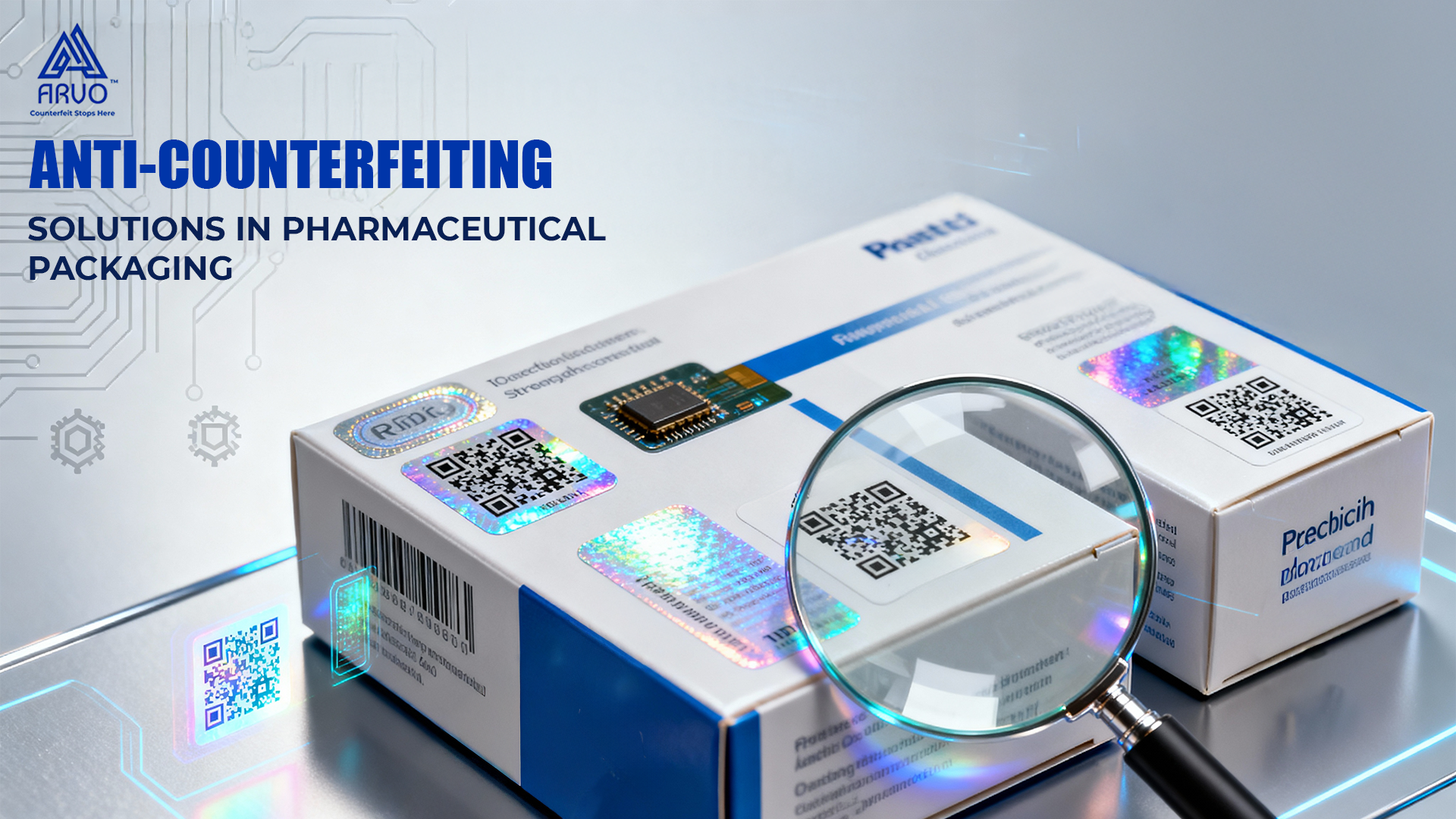
Ever heard of counterfeit free pharma? Well, to be precise, the pharmaceutical product integrity
is both a regulatory requirement and one for protecting the patient and brand reputation from
harm. A large proportion of medicines sold are substandard or counterfeit according to the WHO
and these are potentially lethal. Through the development of systems that guarantee
authenticity, safety, and traceability, the pharmaceutical industry can bolster patient trust, reduce
risks, and ensure that the healthcare environment is a safer place for all.
Digital technologies like serialization pharma, anti-counterfeiting technologies, and blockchain
pharma are transforming recalls by companies and how they protect patients.
The Rising Need for Efficient Pharma

Pharma recalls have soared in the past decade and now reach tens of thousands per year. All
recalls carry risks of injury to patients, disruption of business operations, and harm to reputation.
Speed and precision are critical now.
Serialized and real-time data consolidation enabled centralized recall management enables
businesses to isolate and remove contaminated products promptly without stopping the whole
supply chain.
Serialization Pharma: The Foundation of Traceability
Serialization assigns every salable unit a distinct identification so that supply chains would attain
end-to-end visibility. The U.S. DSCSA and EU FMD regulations have enforced serialization as
one such compliance element.
Besides regulation, serialization allows for prompt authentication and selective recalls,
protecting both patients and brands.
Anti-Counterfeiting Solutions in Pharmaceutical Packaging

Counterfeit drugs remain a global issue, especially in poorly regulated markets. Modern
technology in the form of tamper-evident seals, forensic inks, and sealed QR/DPP codes is
essential in combating it.
When coupled with digital proof-of-authenticity technology, it’s possible for pharmacists,
distributors, and even patients to verify product authenticity in real-time.
Vision AI for Automated Recall and Quality Precision

Errors in human labeling, serialization, or packaging can extend recalls or enable defective
products to remain in circulation. Vision AI scans packaging lines for missing serials, misprints,
or tampering to maintain quality consistency and reduce risks of recall expansion.
Blockchain Technology in Pharmaceuticals
Blockchain offers histories that are proof against tampering for all product movement through
the supply chain. They enable regulators and producers to share one version of reality, with
greater openness, faster investigation, and wider compliance in the event of recalls.
Creating a Counterfeit-Free Pharma World with ARVO
An inviolate world of pharma needs multiple layers of protection: serialization, anti-counterfeiting
packaging, Vision AI, and blockchain. In combination, these technologies yield:
● Faster, more accurate recalls
● Enhanced patient safety measures
● End-to-end visibility throughout the supply chain
● Greater confidence in brand and compliance
Conclusion: The pharma sector is no longer comfortable addressing recalls and counterfeiting
as a reactive problem. Through the right combination of technologies, recalls are transformed
into proactive cost-saving endeavors that protect patients and uphold brand equity.
Contact ARVO today to protect your products, simplify recalls, and offer a counterfeit-proof
future for your brand.
FAQ’s
Q1. Why are pharma recalls increasing, and how can they be improved?
These have multiplied manifold in the past few years due to issues like labeling errors,
contamination, and packaging defects. A recall not just impacts the supply chain but patient
safety as well as brand integrity. Through serialization of pharma and real-time data, companies
can easily detect defective batches, quarantine them, and carry out targeted recalls without
taking down the entire supply chain.
Q2. In what ways do anti-counterfeiting solutions and pharmaceutical
packaging protect patients?
Pharmaceutical counterfeits are fast becoming a worldwide phenomenon. Existing
anti-counterfeiting solutions such as tamper-indicating seals, forensic dyes, and QR/DPP codes,
as well as advanced types of pharmaceutical packaging, ensure product authenticity. These
stop counterfeit medicine from landing on the shelves by enabling pharmacists, distributors, and
even patients to verify products instantly.
Q3. What is the role of blockchain technology in the pharmaceutical
industry?
They provide an immutable history of the journey that every product makes through the supply
chain. It introduces transparency, allows for secure exchange of information between
manufacturers and regulators, and speeds up investigations in the event of a recall. Paired with
serialization and packaging defenses, blockchain increases confidence and constructs a safer
pharma space.